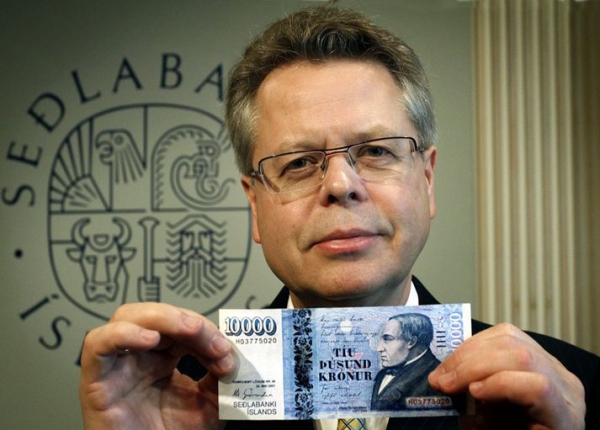The Icelandic government has declared war on tax fraud, floating a number of ideas for new measures to combat tax evasion. Among the ideas being proposed is a withdrawal of both the 10,000 and 5,000 ISK bank note, and a ban on cash at stores.
A war on tax-evasion

A new report, prepared by a task force on tax evasion, concludes that the size of tax fraud has been 3-7% of GDP since 1987. The Minister of Finance told the Icelandic National Broadcasting Service RÚV that the report and its findings should not, and would not, be ignored by the authorities. We will now declare war on tax-evasion, he told RÚV, pledging the government would take radical action to make it harder to shelter income from the authorities.
Read more: Cloud of Panama Papers: Prime Minister refuses to discuss tax-haven report with Parliament
Among the things which the minister mentioned were ideas to drastically reduce the quantity of cash in circulation, making it almost impossible for people to use cash for everyday purchases. These include recalling the two largest banknotes in circulation, the 5000 ISK and 10000 ISK (47 USD/42 EUR and 95 USD/85 EUR) notes, as well as requiring retail stores only accept electronic payments by debit or credit cards.
RÚV reports that the government is also considering placing a upper limit on the size of cash transactions, banning the use of cash for transactions larger than 200,000 ISK (1,900 USD/1,700 EUR).
Draconian action, burdensome for consumers and small business

The idea has been criticized for placing undue burdens on small businesses and consumers, while not addressing the most serious forms of tax fraud.
The report by the task force outlines a number of other measures which should be taken to combat tax-evasion by corporations and wealthy individuals. The Prime Minister, who was the minister of finance prior to the 2016 elections was among the wealthy Icelanders whose name came up in the Panama Papers. He has come under heavy criticism for delaying the publication of a report on the illegal use of tax havens by wealthy individuals and refusal to address its findings.
The Icelandic government has declared war on tax fraud, floating a number of ideas for new measures to combat tax evasion. Among the ideas being proposed is a withdrawal of both the 10,000 and 5,000 ISK bank note, and a ban on cash at stores.
A war on tax-evasion

A new report, prepared by a task force on tax evasion, concludes that the size of tax fraud has been 3-7% of GDP since 1987. The Minister of Finance told the Icelandic National Broadcasting Service RÚV that the report and its findings should not, and would not, be ignored by the authorities. We will now declare war on tax-evasion, he told RÚV, pledging the government would take radical action to make it harder to shelter income from the authorities.
Read more: Cloud of Panama Papers: Prime Minister refuses to discuss tax-haven report with Parliament
Among the things which the minister mentioned were ideas to drastically reduce the quantity of cash in circulation, making it almost impossible for people to use cash for everyday purchases. These include recalling the two largest banknotes in circulation, the 5000 ISK and 10000 ISK (47 USD/42 EUR and 95 USD/85 EUR) notes, as well as requiring retail stores only accept electronic payments by debit or credit cards.
RÚV reports that the government is also considering placing a upper limit on the size of cash transactions, banning the use of cash for transactions larger than 200,000 ISK (1,900 USD/1,700 EUR).
Draconian action, burdensome for consumers and small business

The idea has been criticized for placing undue burdens on small businesses and consumers, while not addressing the most serious forms of tax fraud.
The report by the task force outlines a number of other measures which should be taken to combat tax-evasion by corporations and wealthy individuals. The Prime Minister, who was the minister of finance prior to the 2016 elections was among the wealthy Icelanders whose name came up in the Panama Papers. He has come under heavy criticism for delaying the publication of a report on the illegal use of tax havens by wealthy individuals and refusal to address its findings.






